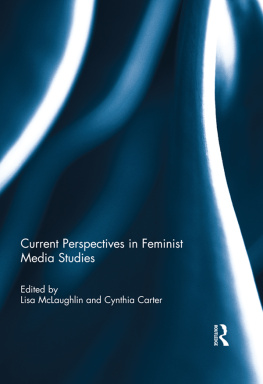Lisa Wedeen - Authoritarian Apprehensions (Chicago Studies in Practices of Meaning)
Here you can read online Lisa Wedeen - Authoritarian Apprehensions (Chicago Studies in Practices of Meaning) full text of the book (entire story) in english for free. Download pdf and epub, get meaning, cover and reviews about this ebook. year: 2019, publisher: University of Chicago Press, genre: Politics. Description of the work, (preface) as well as reviews are available. Best literature library LitArk.com created for fans of good reading and offers a wide selection of genres:
Romance novel
Science fiction
Adventure
Detective
Science
History
Home and family
Prose
Art
Politics
Computer
Non-fiction
Religion
Business
Children
Humor
Choose a favorite category and find really read worthwhile books. Enjoy immersion in the world of imagination, feel the emotions of the characters or learn something new for yourself, make an fascinating discovery.
- Book:Authoritarian Apprehensions (Chicago Studies in Practices of Meaning)
- Author:
- Publisher:University of Chicago Press
- Genre:
- Year:2019
- Rating:3 / 5
- Favourites:Add to favourites
- Your mark:
- 60
- 1
- 2
- 3
- 4
- 5
Authoritarian Apprehensions (Chicago Studies in Practices of Meaning): summary, description and annotation
We offer to read an annotation, description, summary or preface (depends on what the author of the book "Authoritarian Apprehensions (Chicago Studies in Practices of Meaning)" wrote himself). If you haven't found the necessary information about the book — write in the comments, we will try to find it.
Lisa Wedeen: author's other books
Who wrote Authoritarian Apprehensions (Chicago Studies in Practices of Meaning)? Find out the surname, the name of the author of the book and a list of all author's works by series.
Authoritarian Apprehensions (Chicago Studies in Practices of Meaning) — read online for free the complete book (whole text) full work
Below is the text of the book, divided by pages. System saving the place of the last page read, allows you to conveniently read the book "Authoritarian Apprehensions (Chicago Studies in Practices of Meaning)" online for free, without having to search again every time where you left off. Put a bookmark, and you can go to the page where you finished reading at any time.
Font size:
Interval:
Bookmark:
 CHICAGO STUDIES IN PRACTICES OF MEANING
CHICAGO STUDIES IN PRACTICES OF MEANING
A series edited by Andreas Glaeser, William Mazzarella, William H. Sewell Jr., Kaushik Sunder Rajan, and Lisa Wedeen
Published in collaboration with the Chicago Center for Contemporary Theory
http://ccct.uchicago.edu
RECENT BOOKS IN THE SERIES
Deadline: Populism and the Press in Venezuela
by Robert Samet
Guerrilla Marketing: Counterinsurgency and Capitalism in Colombia
by Alexander L. Fattal
What Nostalgia Was: War, Empire, and the Time of a Deadly Emotion
by Thomas Dodman
The Mana of Mass Society
by William Mazzarella
The Sins of the Fathers: Germany, Memory, Method
by Jeffrey K. Olick
The Politics of Dialogic Imagination: Power and Popular Culture in Early Modern Japan
by Katsuya Hirano
American Value: Migrants, Money, and Meaning in El Salvador and the United States
by David Pedersen
Questioning Secularism: Islam, Sovereignty, and the Rule of Law in Modern Egypt
by Hussein Ali Agrama
The Making of Romantic Love: Longing and Sexuality in Europe, South Asia, and Japan, 9001200 CE
by William M. Reddy
The Moral Neoliberal: Welfare and Citizenship in Italy
by Andrea Muehlebach
The Genealogical Science: The Search for Jewish Origins and the Politics of Epistemology
by Nadia Abu El-Haj
Lisa Wedeen
THE UNIVERSITY OF CHICAGO PRESS
Chicago and London
The University of Chicago Press, Chicago 60637
The University of Chicago Press, Ltd., London
2019 by The University of Chicago
All rights reserved. No part of this book may be used or reproduced in any manner whatsoever without written permission, except in the case of brief quotations in critical articles and reviews. For more information, contact the University of Chicago Press, 1427 E. 60th St., Chicago, IL 60637.
Published 2019
Printed in the United States of America
28 27 26 25 24 23 22 21 20 19 1 2 3 4 5
ISBN-13: 978-0-226-65057-9 (cloth)
ISBN-13: 978-0-226-65060-9 (paper)
ISBN-13: 978-0-226-65074-6 (e-book)
DOI: https://doi.org/10.7208/chicago/9780226650746.001.0001
Library of Congress Cataloging-in-Publication Data
Names: Wedeen, Lisa, author.
Title: Authoritarian apprehensions : ideology, judgment, and mourning in Syria / Lisa Wedeen.
Description: Chicago : The University of Chicago Press, 2019. | Series: Chicago studies in practices of meaning | Includes bibliographical references and index.
Identifiers: LCCN 2019006643 | ISBN 9780226650579 (cloth : alk. paper) | ISBN 9780226650609 (pbk. : alk. paper) | ISBN 9780226650746 (e-book)
Subjects: LCSH: SyriaHistoryCivil War, 2011
Classification: LCC DS98.6 .W43 2019 | DDC 956.9104/23dc23
LC record available at https://lccn.loc.gov/2019006643
 This paper meets the requirements of ANSI/NISO Z39.48-1992 (Permanence of Paper).
This paper meets the requirements of ANSI/NISO Z39.48-1992 (Permanence of Paper).
Sofia Fenner
When I returned to Syria in 2010 after an absence of over a decade, I was surprised to see how much had changedand how much remained familiar. I intended to write a book that grappled with the seeming emergence of a kinder, gentler version of autocracy under president Bashar al-Asad (2000). Among the issues I envisaged exploring were the forms of generational change that were both a product and a driver of market openings; the new aesthetic imaginaries of everyday life accompanying the marked embrace of consumption and departure from Soviet-era styles of insularity and asceticism; and the palpable support Bashar seemed to be garnering from communities that had hitherto withheld it from the regime, including former dissidents, artists, urban professionals, and members of the clergy. Then came the uprising in Tunisia, registering grievances and animating hopes for the end of tyrannies throughout the Arab world, inspiring subsequent large-scale protests in Egypt, Yemen, Libya, Bahrainand Syria. I was still in Damascus when the uprising began in March 2011, leaving only toward the end of May, by which time indications of the regimes intransigence and the troubles besetting multiple oppositions had already become too glaring to ignore.
Authoritarian Apprehensions is the book that resulted. It remains keyed to my initial interests in authoritarian resilience and political change, abiding concerns to political scientists, while also exploring important issues currently under debate in political theory and anthropology. Focused from the outset on the complexities of ideological uptake and the processes of recruitment into what I had decided (pre-uprising) to call Syrias neoliberal autocracy, the book became increasingly inflected by the extraordinary rush of eventsfirst by the revolutionary exhilaration of the initial days of unrest and then by the devastating violence that with terrible speed shattered hopes of any quick undoing of dictatorship.
The books ideas thus speak to my decades-long engagement with Syria and Syrians, even as my expectations were also being transformed by unanticipated circumstances on the ground. Among the eye-opening aspects of doing fieldwork in such tumultuous times was the remarkable divergence in political views I encountered about what should/could be done. From friends, acquaintances, family members, colleagues, and interviewees, I heard people speaking out in favor of the immediate toppling of the regime, and others declaring persisting love for the leader. In between I found a range of opinion and emotion, experienced by people in moments of intensified excitement, anxiety, humor, anger, fear, and euphoria. The book registers my admiration for those who dared from the start to envision alternatives to the status quo and act in that spirit. As a social scientist attempting to understand what was quickly becoming a tragedy, I also benefited from interactions with Syrians who did not boldly take to the streets: the so-called gray people (al-ramadiyyin), the many who spent the heady early days of the uprising shifting between their desires for reform and their attachment to order. We will see in how the presence of this ambivalent middle proved critical at key moments to regime survival, affording the regime the latitude needed to recalibrate its relationship to rule.
As some readers know, my first book, Ambiguities of Domination (1999 [2015]), explored the transparently bogus rituals of obeisance characterizing the autocracy under Bashar al-Asads father, Hafiz (19702000). My argument in that book was that the blatantly fictitious official rhetoric of the time operated as a means not of cultivating belief or emotional commitment but of specifying the form and content of civic obedience. Beyond the barrel of the gun and the confines of the torture chamber, as I put it then, Asads personality cult served as a disciplinary device, generating a politics of public dissimulation in which citizens acted as if they revered their leader. By inundating daily life with instructive symbolism, the regime exercised a subtle yet effective form of power. The cult worked to enforce obedience, induce complicity, atomize Syrians from one another, and establish the guidelines for public speech and action. Even when citizens kept their ironical distance, even when they demonstrated that they
Evidence of the distanced, irreverent attitude adopted by most Syrians toward regime rhetoric was everywhere to be seen under the elder Asad. Satirical cartoons, underground (and permitted) comedy skits, and discreetly shared jokes constantly poked fun at the regimes official claims to omnipotence in ways that laid bare the ambiguities of political domination and the incomplete but nevertheless potent effects of autocratic social control. Ambiguities remain under the son, of course, but this book focuses not on the chinks in domination but on the complexities of political attachment. As the ruling Bath Party relinquished its monopoly over the form, content, and dissemination of public discourse during the first decade under Bashar al-Asad, it became newly difficult in Syria to know for certain what even counted officially as support. Gone were the excessively clear guidelines for acceptable civic conduct. In their place stood an invitation to a different kind of attachment where the tether was not so much political prudence as commodified desire.
Font size:
Interval:
Bookmark:
Similar books «Authoritarian Apprehensions (Chicago Studies in Practices of Meaning)»
Look at similar books to Authoritarian Apprehensions (Chicago Studies in Practices of Meaning). We have selected literature similar in name and meaning in the hope of providing readers with more options to find new, interesting, not yet read works.
Discussion, reviews of the book Authoritarian Apprehensions (Chicago Studies in Practices of Meaning) and just readers' own opinions. Leave your comments, write what you think about the work, its meaning or the main characters. Specify what exactly you liked and what you didn't like, and why you think so.













